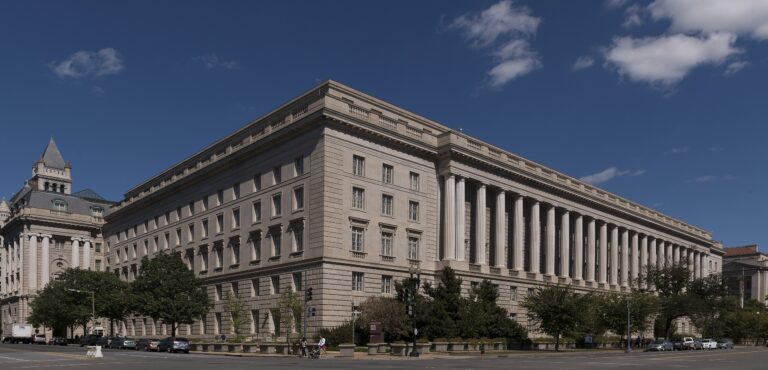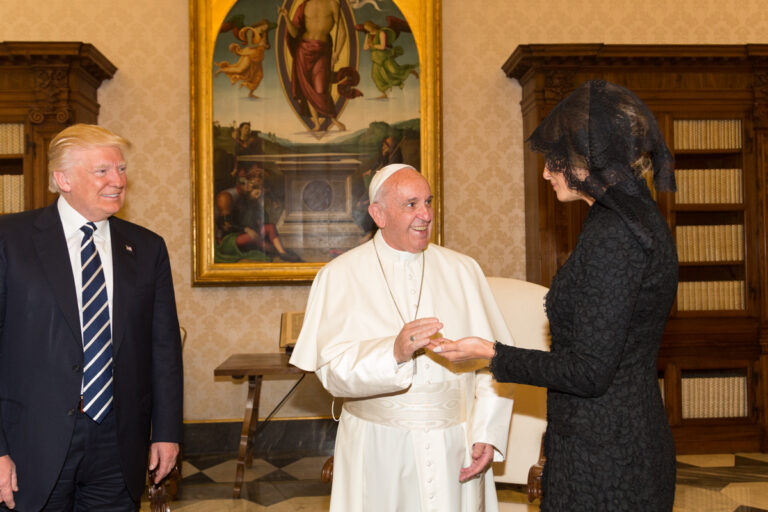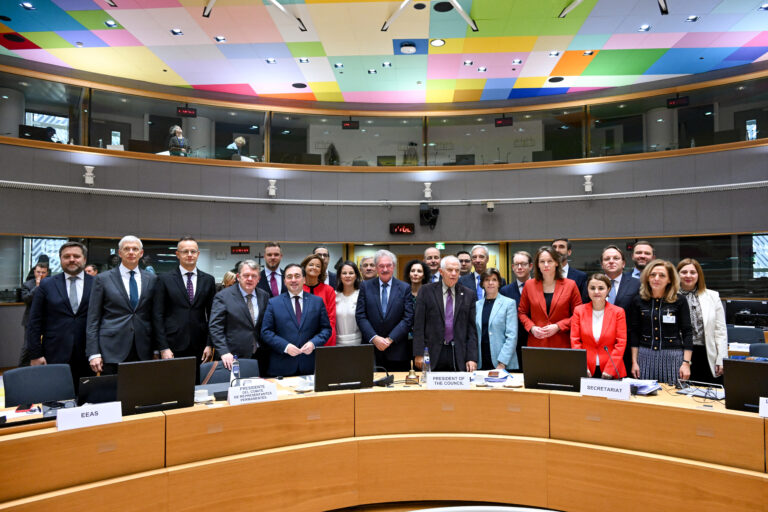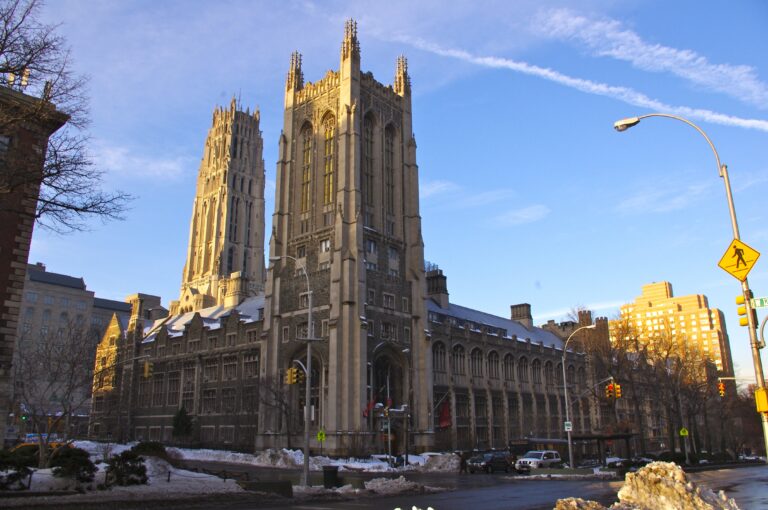
Interreligious Education within the Framework of Colombia’s Public Policy on Religious Freedom and Worship
Camila A. Sánchez Sandoval
Nevado del Ruiz from Manizales, Colombia by Sebastian Jiménez (CC BY-SA 2.0).
This article is part of our virtual symposium and essay series, “Masking Religious Freedom Violations.” Read more here.
This essay is part of the “Masking Religious Freedom Violations” symposium organized by Canopy Forum and the IIRF. The following sections present the proposed and developed educational actions from the Comprehensive Public Policy on Religious Freedom and Worship (CPPRFW) to promote interreligious education and strengthen the guarantee of religious freedom in Colombia. This analysis is essential to understand how public policies can influence peaceful coexistence among diverse beliefs and foster an environment of respect and tolerance.
The CPPRFW emerged in Colombia as the first technical public policy document dedicated to guaranteeing the right to religious freedom and worship. This need became evident following instances of violations and discrimination that highlighted the country’s religious diversity, leading to increased recognition of the importance of addressing these issues in the public agenda.
The document, published in 2017, identifies several issues it seeks to address through its actions and programs. These include:
- Weak and insufficient actions to guarantee the exercise of religious freedom and worship in Colombia
- Lack of recognition of the contributions religious entities make to the common good
- Acts of religious discrimination and intolerance
To address these complex problems, the CPPRFW comprises a series of pillars, actions, and action lines, which can be understood as programs for implementation. Appendix 1 provides a detailed description of these pillars and actions, offering a clear framework for implementation and monitoring.
In addition, the CPPRFW’s initiatives highlight the importance of collaboration among various stakeholders, including government entities, educational institutions, and civil society organizations. By working together, these groups have created comprehensive strategies that address the nuances of religious diversity in Colombia.
Moreover, the CPPRFW’s emphasis on education aligns with global trends advocating for human rights and social justice. Colombia’s proactive stance provides a model for integrating religious freedom into public policy. This public policy not only enhances the rights of religious minorities but also strengthens democratic values by ensuring that all citizens can participate fully in society without fear of persecution.
Interreligious Education
In the context of interreligious education, it is crucial to consider religious education scholar Jennifer Pelupessy-Wowor’s observation about the role of religious education. She states that “religious education plays an important role because it can significantly promote religious freedom among communities”. As religion scholars Paul Hedges and Anna Halafoff emphasize, this educational process helps communities understand the benefits of respecting diversity while ensuring that religious rights do not infringe upon the rights of others. Additionally, as social and cultural anthropologist Lyn Parker (2014) argues, religious education plays a key role in fostering interreligious tolerance and understanding.
These statements underscore the transformative potential of inclusive education that not only informs about different religious beliefs but also promotes fundamental values such as mutual respect and empathy. In the Colombian context, before 2024, public schools were responsible for religious education, mainly focused on Catholicism. This approach significantly limited understanding of other religious traditions present in the country.
However, on September 28, 2024, the Constitutional Court issued Judgment T-357 of 2024. This ruling established that public schools should not promote a specific creed in religion classes. Although religious education is mandatory, its content should not be dogmatic, and alternatives should be offered to students who choose not to receive such instruction. This represents significant progress toward respecting freedom of worship. The Court argued that teaching Catholic practices and doctrines to all students violates the principle of secularism, which is essential to ensuring an equitable educational environment.
Thus, while the public policy document advocates for education that recognizes religious diversity as an objective (1.9), it was only in 2024, due to this judicial ruling, that non-dogmatic religious education began to be guaranteed nationwide. This new regulation acknowledges both individual beliefs and the diversity among students, allowing for a more pluralistic and inclusive approach.
Interreligious Education Proposals in the CPPRFW
In line with one of the symposium’s objectives—to explore the role of education and research in university settings to strengthen policies that defend religious freedom—Colombia has made significant efforts to strengthen interreligious education in both university and governmental settings. These advancements are largely attributable to the CPPRFW, which includes various initiatives in its action lines designed to foster a deeper understanding of religious issues.
Some of these initiatives include:
- Action Line 1.2.2: Engage with media outlets to train their members on the language and specific characteristics of religious phenomena and culture.
- Action Line 1.3.2: Implement regular training strategies on religious matters for public servants across various divisions of the Ministry of the Interior.
- Action Line 1.4.1: Develop forums, workshops, training sessions, and produce and distribute interactive educational materials that explain and provide guidance on the constitutional and legal framework of religious freedom and worship, as well as the complexity of religious plurality, culture, and religious facts in Colombia.
- Action Line 1.4.2: Design and implement ongoing education strategies, in partnership with universities and/or cooperating organizations, for public officials, authorities, and the general public to deepen their understanding of religious facts, culture, and legal frameworks.
- Action Line 1.9.1: Continue the Interinstitutional Committee’s work analyzing the connection between education rights and religious freedom, focusing on issues that arise in the exercise of educational rights and religious freedom.
These initiatives demonstrate a commitment to inclusive education that respects and values Colombia’s diverse beliefs. Additionally, by promoting better understanding among different social, economic, political, and religious groups, a more tolerant and respectful environment is fostered toward all religious expressions. The actions outlined in the CPPRFW not only benefit specific religious communities but also reinforce the importance of building a tolerant social fabric in Colombia, promoting a culture of reciprocal respect and productive conversation among diverse religious traditions.
What Has Been Done in Colombia? Examples of Educational Initiatives
Based on available information, various training sessions and workshops on religious freedom have been conducted in Colombia, targeting both the university and governmental sectors, as well as media outlets. Below are some examples found:
- Religious Freedom, Legal Affairs, and Human Rights course promoted by the Senate of the Republic of Colombia, is designed as a comprehensive initiative to address the complex intersection between religious freedom and human rights in the country. This course consists of five modules covering fundamental aspects, from existing legislation to the analysis of practical cases illustrating the application of these rights in specific situations. To date, it has registered over 2,085 enrollments from religious leaders and citizens, demonstrating a growing interest and need for training in this area.
- Training on the role of media in promoting and strengthening respect for religious freedom led by the Mayor’s Office of Madrid, Cundinamarca. This training focused on promoting tolerance and the proper use of language when discussing topics related to various religious beliefs. The importance of identifying the social work carried out by religious entities was emphasized, as they often contribute significantly to community well-being. Through this training, media were encouraged to responsibly represent different religious traditions, avoiding negative stereotypes and fostering an environment of mutual respect among various faiths.
- Six awareness sessions conducted for alternative and community media in Bogotá, in 2021. These sessions aimed to introduce general concepts of religious freedom, freedom of worship, and freedom of conscience, as well as freedom of expression. Critical topics such as hate speech and international action plans to eradicate advocacy of hatred based on beliefs or convictions were addressed. The training sessions were held in several districts, including Usme, Barrios Unidos, Santa Fe, and La Candelaria.
- Third District Forum on Religious Freedom: Perspectives in Times of Uncertainty organized by the Open and Distance National University in collaboration with the Subdirectorate of Religious Freedom and Conscience Affairs of the District Government Secretariat. Its purpose was to create a meeting space for leaders in the religious sector, members of the academic community, religious observatories, and the general public. Participants included the National University of Colombia, the Pontifical Xavierian University, the University of La Sabana, the University of La Salle, the San Buenaventura University, the Open and Distance National University, and the Observatory of the Archdiocese of Bogotá.
The actions mentioned throughout this essay reflect the commitment of governmental entities in Colombia and the CPPRFW to promote religious freedom, ensuring interreligious education processes and recognizing the contributions of faith-based organizations to society. These efforts aim not only to ensure that all citizens have the right to practice their religion without fear of reprisals but also to educate the population on the diversity of beliefs coexisting in the country. In general terms, these efforts seek to reduce persecution, discrimination, and violations of the right to religious freedom and belief, while raising societal awareness of the importance of this right in everyday life.
Promoting interreligious education fosters a deeper understanding among different communities, which can contribute to reducing prejudices and negative stereotypes. Additionally, by acknowledging the positive role religious organizations play in areas such as education, health, and social welfare, their contribution to social cohesion is validated and closer collaboration between the state and these entities is encouraged. ♦

Camila A. Sánchez Sandoval holds a PhD in Social Sciences from FLACSO Mexico and is an independent consultant specializing in public policy evaluation. Her main research areas include religious freedom, public policy, and the relationship between politics and religion.
Recommended Citation
Sánchez Sandoval, Camila A. “Interreligious Education within the Framework of Colombia’s Public Policy on Religious Freedom and Worship.” Canopy Forum, January 21, 2025. https://canopyforum.org/2025/01/21/interreligious-education-within-the-framework-of-colombias-public-policy-on-religious-freedom-and-worship/.
Recent Posts










